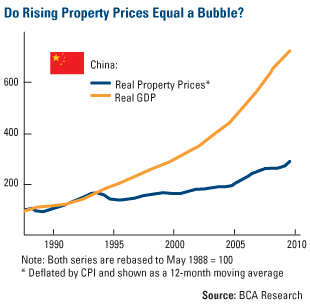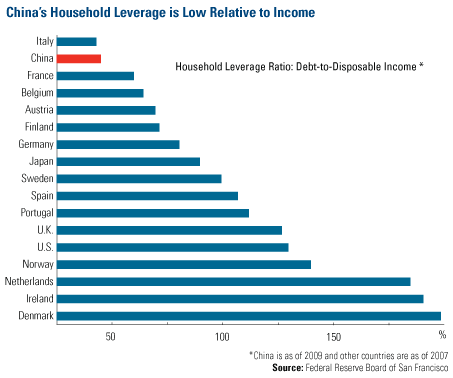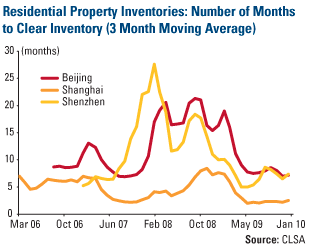Home » Posts tagged 'history'
Tag Archives: history
Ferguson on global re-convergence
Economic historian Naill Ferguson on the six “killer apps” (or institutions) in the West that generated the Great Divergence since 1700s, up until the recent rise of China. And he argues that gap between the West and the East is coming to an end, with China fast catching up with the West, leading to a re-convergence of the world economy.
In the interview, Naill Ferguson had many claims in his sharp observation of the history. However, despite being deeply intriguing, most of his claims remain to be just hypotheses. As a China watcher, I am not so certain at this moment that China’s surpassing of the US on per capita income level is inevitable, although I am positive that China’s total GDP will pass the US in no time.
For readers who are interested in the topic of the Great Divergence and Re-convergence, I would recommend two additional readings: The first is a classic by Ken Pomeranz, “The Great Divergence: China, Europe, and the Making of the Modern World Economy“; and the second is by Ian Morris, “Why the West Rules -For Now.”
China – bubble or no bubble?
China’s real estate bubble is of great concern to many people. Today, I want to entertain you with two contrast views on China’s real estate and housing market.
First group holds the view that China is experiencing no asset bubble in housing market, or, similar to Japan in 1970s, the sharp rising of housing price is a reflection of strong housing demands coming from high population density and rapid urbanization.
An example of this is a recent report from US Global Investors:
No Housing Bubble in China
By John Derrick, Director of Research
China’s housing market is hot, but it’s not a bubble on the verge of bursting, as many contend.
Before we can discuss why it’s not a bubble, a little background on the Chinese housing market is needed.
Prior to the early 1990s, urban dwellers in China were provided an apartment by their employers or the government, with rent set at less than 5 percent of their salary (utilities included). Starting in the early 1990s, the government began to privatize housing by selling apartments to their residents at a low price. Almost overnight it created a private home ownership rate of about 70 percent.
This policy change was also a vast redistribution of wealth from the government to the people – those apartments typically occupied prime downtown locations, and thus are worth at least the price of a new luxury apartment.
The price of housing in China has risen as the economy has expanded, but the chart from BCA Research shows that housing price growth has been significantly slower than GDP growth since the late 1980s.
The price of housing has roughly doubled since the late 1990s, but it’s important to remember that China’s prices have risen from a much lower base than in the developed countries (among them, Britain, Ireland and Spain) in which bubbles were created. It’s also relevant to point out that household disposable income in China more than doubled during the period. The rise of the Chinese middle class is a major global economic phenomenon – tens of millions of people are added each year.
Leverage is also an important indicator in judging how susceptible a housing market is to growing into a bubble. The chart below, also from BCA Research, shows debt as a percentage of disposable income in China and in a number of developed-market countries. More than half of the developed countries had debt in excess of income, with Denmark and Ireland pushing 200 percent.
China is at the far other end, with debt totaling just 44 percent of disposable income.
Furthermore, homebuyers in China put down at least 20 percent as a down payment (30 percent for a first-time buyer and 40 percent for a second-home buyer to damp down speculation). These buyers rarely fall behind on their mortgage payments.It’s obviously true that there has been rapid price appreciation in major cities like Shanghai and Beijing. Prices have risen above the affordability level for most families in these cities, and that is why the government is acting to let some air out of those markets before dangerous bubbles form.
For example, the government’s “second mortgage rule” requiring much higher down payments is having some effect – in January, price appreciation rose less than 1 percent month-over-month, down from a 2.1 percent jump in December. The government has also ordered that developers build more economical homes.
Where does the China housing market go from here? Home inventories are low in major cities – at the current sales pace, there are only a few months worth of inventory in Shanghai, and the situation isn’t much better in Beijing or Shenzhen (see chart below).
But demand is still strong. A recent survey by the Hong Kong-based brokerage CLSA found that 56 percent of China’s middle-class families are considering buying a new home – despite the higher prices many families can pay a 30 percent down payment because of their higher savings.
Our own research shows that property developers, coming off a good 2009, are expanding into second- and third-tier cities, where housing markets are also growing and prices are more affordable.
This widening of opportunity, combined with the government’s early recognition that decisive measures were needed, together will raise the probability that it will achieve its goal of slowing down home price increases without causing the market to collapse.
Another report comparing Japan and China from BoJ (Bank of Japan) also holds the similar view.
Here is the Chinese version and English version of the BoJ report. (h/t Yuki Masujima).
The other group, including myself, holds the view that China has a big real estate bubble waiting to burst. The only uncertainty is how big the impact will be.
I argued many times before that because China is at a much different development level than Japan was, thus with much higher growth potential, meanwhile China is still closed to free international capital flows, the damage of the bubble burst won’t affect China’s long-term growth projection, i.e., in China, there won’t be a lost decade similar to what happened in Japan and the U.S.
To demonstrate the key insights of the views for the second group, here I recommend two pieces:
1. NYT report on short seller Jim Chanos on his big bet against China.
2. In this Charlie Rose interview (one of my favorite shows), Jim Chanos elaborate why he’s shorting China, and what he’s been watching on China bubble.
This is a highly recommended piece,
(click to play in new window, about 30 mins)
Lowenstein: The future of Wall Street
Interview of Roger Lowenstein, author of “When Genius Failed: The Rise and Fall of Long-Term Capital Management” and “Buffett: The Making of an American Capitalist.”
Link to the interview, about 45 mins. A good history review of what went wrong.
What’s the right label for 2007-09 recession?
David Wessel discusses how to label the recent recession – In what sense, this was a GREAT Recession; and in what sense, it may not have been so different from other recessions, say the 1980-82 recession.
I think this recession ‘deserves’ to be called the Great Recession, or Great Develeraging, because of the following:
1. The first nationwide sharp housing price decline;
2. The Wall Street was totally reshaped: Bear Stearns, Lehman, Merrill and Wachovia were all gone, for example.
3. Worst labor market slump since the Great Depression in 1930s, and the employment will take long time to recover to the pre-crisis trend level;
4. Its contagion effect worldwide.
Federal Reserve Chairman Ben Bernanke calls it “the worst financial crisis in modern history.” His predecessor, Alan Greenspan, says it was “the most virulent global financial crisis ever.” The resulting recession was longer and deeper than any the U.S. has suffered since World War II.
But does it deserve the heavy mantle of “The Great Recession” that it seems to be acquiring? “Great” is a big word, a mark of enormous historical significance. World War I was the Great War until the second world war came along.
Herbert Hoover was an early adopter of “Great Depression,” using the phrase in 1931 because he thought it less alarming than “panic” or “crisis.” The Great Depression surely deserves the name. Industrial production fell 45% between 1929 and 1932. Unemployment went from 3% to 25%.
Economists often refer to the Great Inflation of the 1970s, the only time the U.S. saw sustained inflation above 5% in peacetime in the 20th century. For a time, they talked about the Great Moderation, the unusually calm economic seas that stretched from the mid-1980s to the early 2000s that some saw as a permanent change. Recent events suggest that it might be better described as the Great Mirage.
The recent recession began in December 2007 and probably ended in June or July 2009. (The end to recession isn’t the victorious end to a football game. The date marks only the moment where things stop getting worse.) It lasted about 18 months, longer than any post-war recession. Industrial production fell 16%, far more than any recession since the Depression. Payrolls fell 6%, unrivaled by recessions of the past half century. Unemployment went from 4.4% to 10.1%, an increase bigger than the five-percentage-point climb in the early 1980s—though the jobless rate didn’t hit the 10.8% peak hit in 1982.
“It’s pretty clear this is the most severe post-war recession,” says Mark Watson, a Princeton economist. But “greatness,” he adds, implies something more than “severe.”
…
and watch this recessions Yardstick








![Reblog this post [with Zemanta]](https://img.zemanta.com/reblog_e.png?x-id=37a9de28-17ae-43eb-8530-55fd86792aac)

![Reblog this post [with Zemanta]](https://img.zemanta.com/reblog_e.png?x-id=fd248c73-5966-4fd4-98d3-63057edcdfa2)
